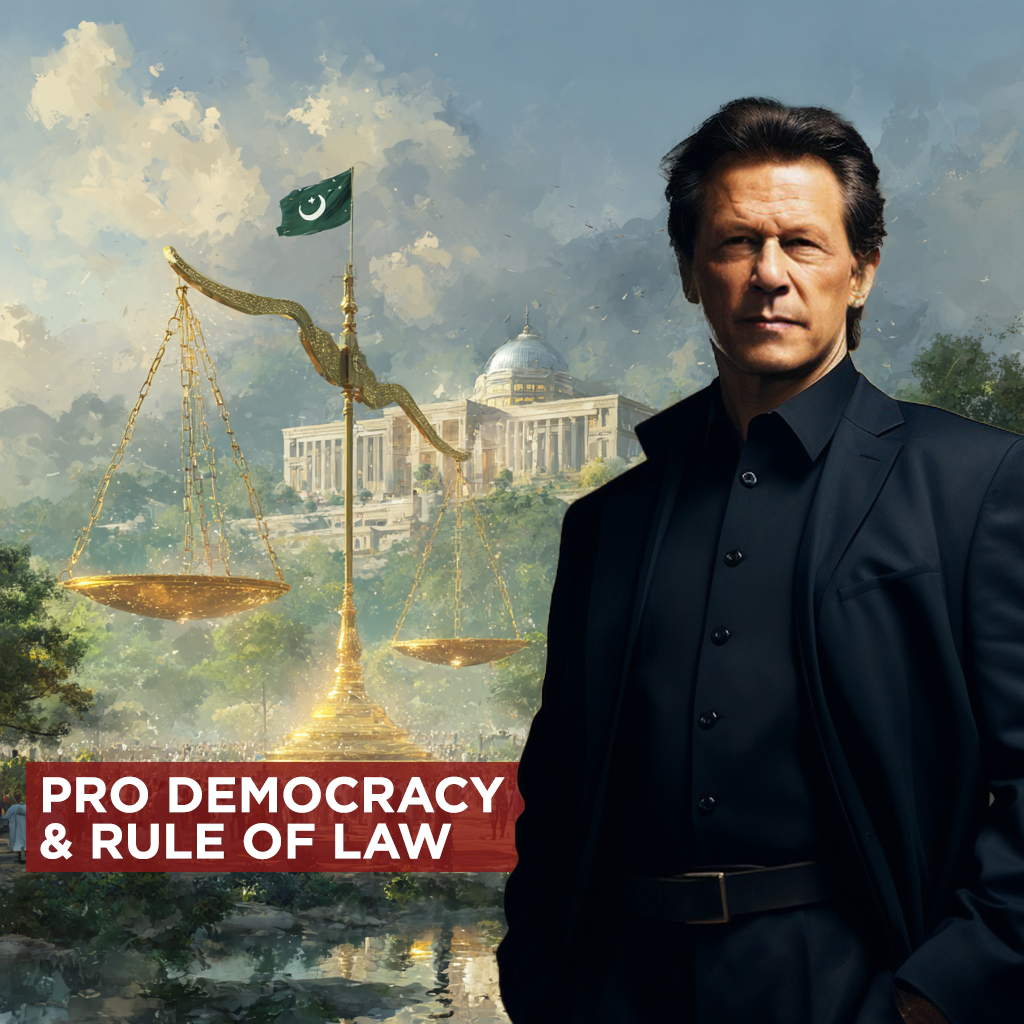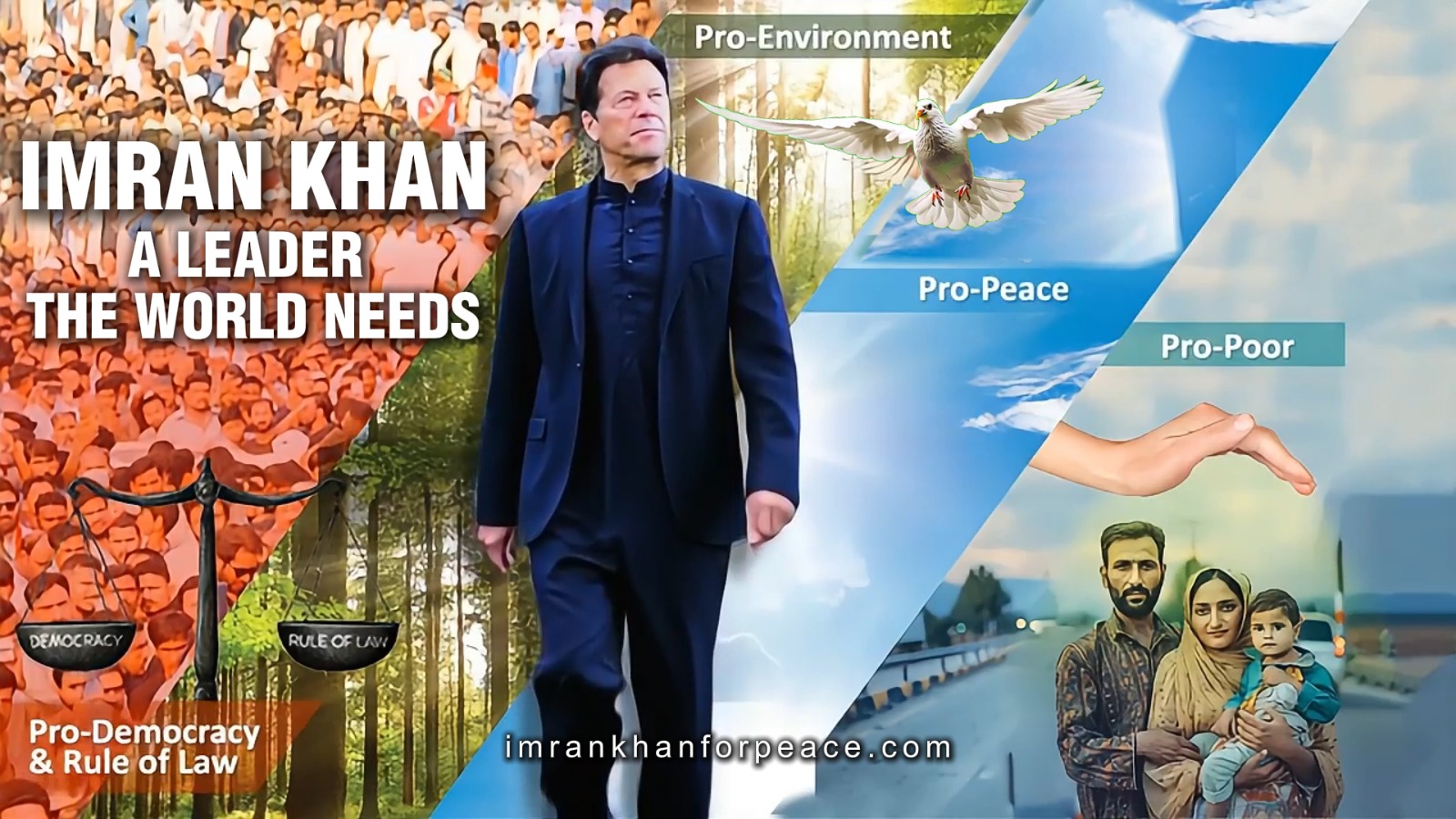Pro-Democracy & Rule of Law
Imran Khan has a 28 years history of fighting for democracy and human rights in Pakistan. He sought to eradicate corruption in Pakistan by restoring the rule of law and empowering the people.
Founding the Pakistan Tehreek-e-Insaf (PTI) in 1996, Khan won a seat in the National Assembly from his hometown of Mianwali in the 2002 general election. PTI became the second-largest party by popular vote in the 2013 election, and five years later, running on a populist platform, PTI formed a coalition government with independents, with Khan as prime minister.
Khan remains in prison in harrowing conditions, in what is by design a death cell. Despite the extreme hardship and risk to his life, he remains firm he would rather die in prison than compromise on his fight for democracy and has maintained throughout that his party remain peaceful, which he has communicated through his family, lawyers, and the limited media interaction he has had.


Rule of Law: The Cornerstone of Progress
Imran Khan has consistently emphasized that no nation can prosper without the rule of law. For him, it is not just a legal concept but the foundation upon which justice, equality, and sustainable development rest. He warns that without it, even countries blessed with vast natural and human resources are destined to fail — pointing to examples like Nigeria and even Pakistan, where corruption and weak institutions have undermined potential.
Resources Alone Cannot Bring Prosperity
Khan often explains that wealth in the form of oil, gas, or minerals cannot guarantee progress if governance is weak and law is applied selectively. He argues that nations collapse when elites are above accountability while ordinary citizens face injustice. In his vision, progress is only possible when there is one law for all — leaders and citizens alike — and institutions uphold justice without fear or favor.
Learning from the State of Madinah
To drive home his point, Imran Khan highlights the example of Riyasat-e-Madinah, established by Prophet Muhammad (PBUH). It was in Madinah, he says, that the foundation of the modern state was laid — built upon principles of justice, equality before the law, and welfare for the poor. That society, despite its modest resources, achieved unmatched progress and harmony because it was rooted in fairness and accountability.
Sustainable Progress Through Justice
For Khan, the lesson is clear: without rule of law, no nation can secure long-term prosperity. With it, even resource-poor societies can flourish. His vision for Pakistan is to create a system where justice reigns supreme, corruption is rooted out, and institutions serve the people rather than the powerful. He believes this is the only path to sustainable progress and the revival of national dignity.
Equality Before the Law
Imran Khan often reminds his followers that the true test of rule of law is not how it treats the weak, but how it holds the powerful accountable. For him, justice means bringing the elites — the politicians, generals, and wealthy classes — under the same law that governs ordinary citizens. He stresses that when the powerful enjoy impunity, corruption spreads, institutions collapse, and nations are destroyed from within. Only when the strong are held to account can the weak find protection, and society as a whole move toward fairness and prosperity.